Physical Address
304 North Cardinal St.
Dorchester Center, MA 02124
Physical Address
304 North Cardinal St.
Dorchester Center, MA 02124
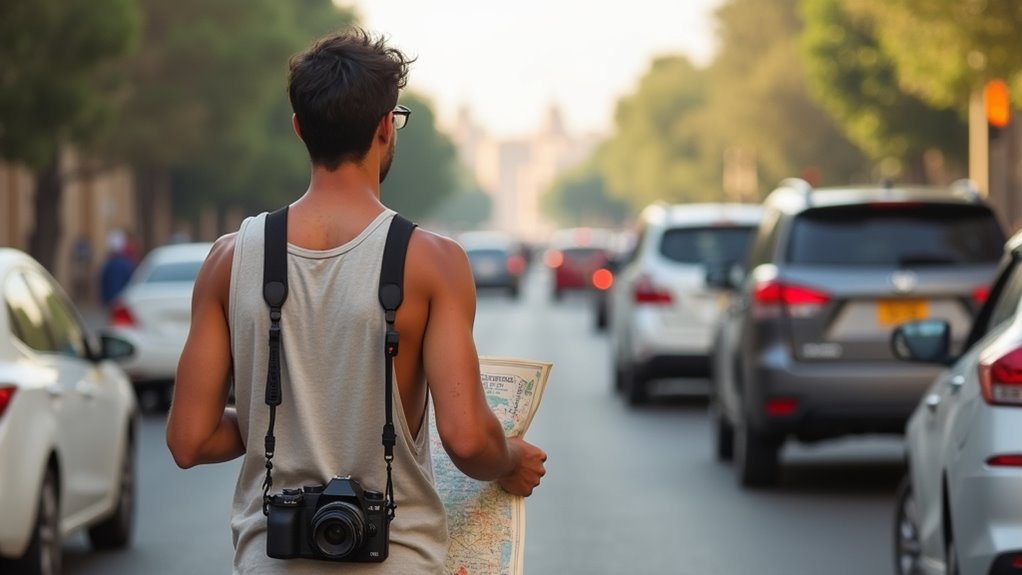
Overlooking Egyptian cultural norms can ruin your trip, but knowing these 9 common tourist mistakes will save your adventure.
When visiting Egypt, avoid drinking tap water, photographing people without permission, and disregarding local dress codes at religious sites. Don’t fall for common scams like “no change” tricks or overpriced camel rides. Always carry cash for tips and small purchases, bargain in markets, and leave room in your itinerary for delays. Most importantly, respect security advisories about restricted regions like North Sinai. These simple precautions will transform your Egyptian adventure.
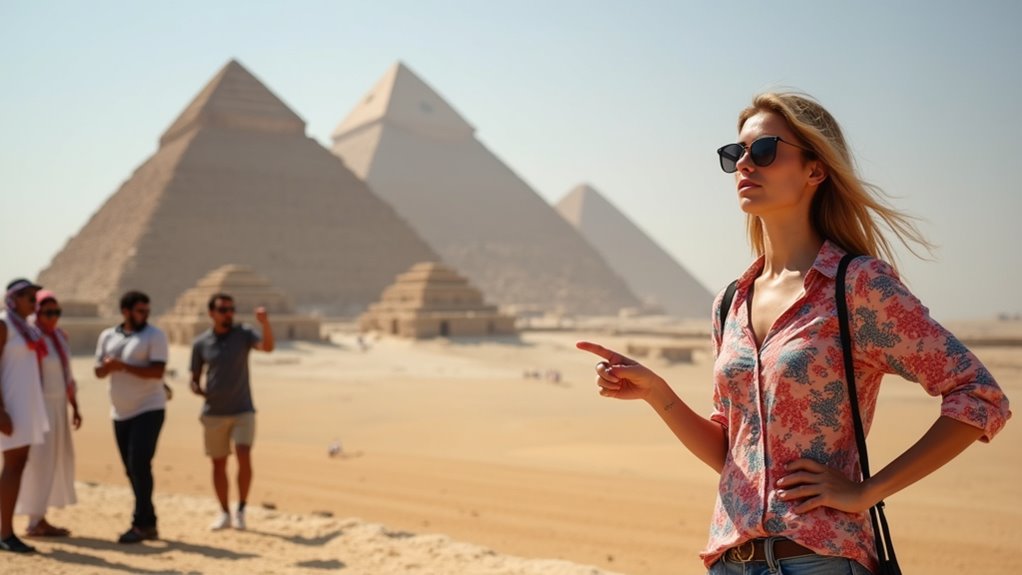
While Egypt offers incredible historical wonders and vibrant culture, many visitors fall into common traps that can diminish their experience. Overlooking local customs, such as appropriate dress at religious sites or basic Arabic phrases, often creates unintended offense.
Safety missteps include carrying excessive cash, ignoring travel advisories, and venturing alone into unfamiliar areas. Cairo is generally considered safe to visit, but it’s important to exercise caution and stay aware of your surroundings.
Financial pitfalls are equally problematic—failing to negotiate prices beforehand, succumbing to common scams near tourist attractions, and mishandling credit card information.
Many travelers also make logistical errors by cramming too many activities into tight schedules and underestimating Cairo’s notorious traffic. Remember that drinking tap water in Egypt can cause severe stomach issues, so always opt for bottled water throughout your trip.
Finally, being unprepared for persistent vendors and neglecting the tipping culture can create uncomfortable social interactions.
A little preparation helps avoid these nine common mistakes that plague unprepared travelers.
Egypt’s affluent cultural and religious heritage demands respect that begins with your wardrobe choices. When visiting this historic nation, your attire communicates your understanding of local customs and can considerably impact your experience.
Your attire in Egypt speaks volumes about your respect for its ancient cultural tapestry
When taking photographs, remember to ask permission before capturing images of locals, military personnel, or government buildings, as this shows cultural sensitivity and prevents potential conflicts. Lebanese cuisine is renowned for its diverse flavors and vibrant culinary traditions.

Taking precautions with what you eat and drink in Egypt can make the difference between an enjoyable trip and one derailed by illness. Avoid drinking tap water, as quality varies markedly across regions and may contain harmful free-living amoebae or other contaminants. Even in areas with chlorination systems, maintenance failures can lead to untreated water reaching your tap. This is especially important since 7.3 million people in Egypt still lack access to safe water, with most of these being in rural areas. Egyptian cuisine is renowned for its diverse and flavorful dishes, so be equally vigilant about food safety. Street food can be delicious but risky if improperly handled. Choose restaurants with visible hygiene standards and avoid those that seem unclean. Wash your hands frequently, especially before meals, and consider carrying hand sanitizer.
Exploring Egypt’s cultural and culinary landscape requires caution, but so does protecting your wallet from common tourist scams. With over half of Egyptians themselves having been victims of fraud, travelers are particularly vulnerable targets in crowded areas and around major attractions.
When visiting the Great Pyramid area, watch out for misleading camel riders who intentionally guide travelers on incorrect routes to charge exorbitant fees for return trips. Plus, be cautious of common tourist mistakes that can easily lead to unpleasant experiences or financial losses.
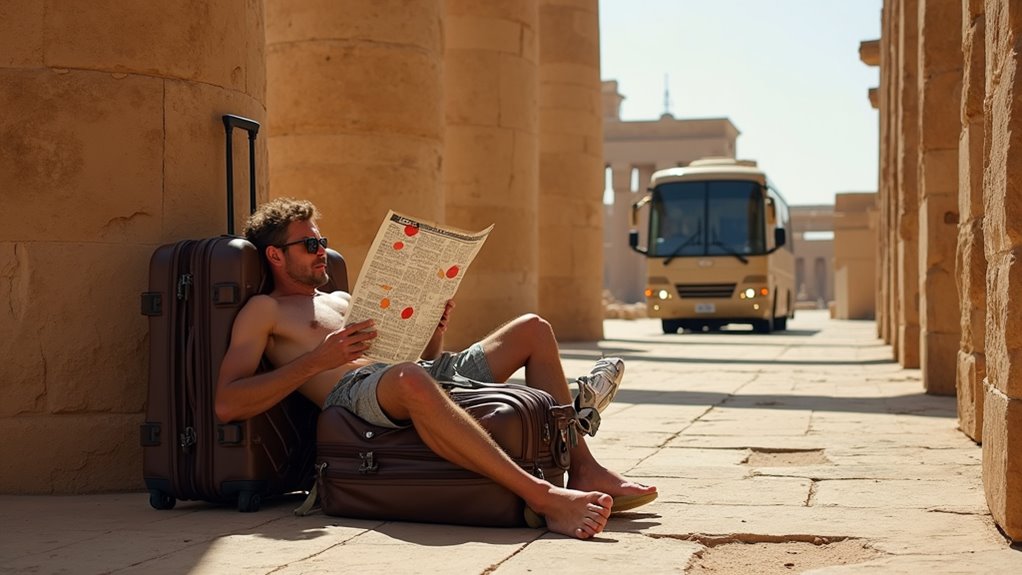
While planning an Egyptian adventure, many travelers make the critical mistake of cramming too many attractions into a limited timeframe. With major sites spread across vast distances, you’ll need realistic expectations about travel times.
Remember that Cairo to Luxor takes about 10 hours by car, and Cairo’s notorious traffic can derail even the best-planned schedule. The average international tourist stays for roughly 10 days, but seeing all major historical sites properly requires at least 4-5 days alone. Cairo or Luxor: Which Egyptian City Should You Visit is an important factor to consider when planning your itinerary.
Instead of rushing, prioritize must-see attractions and build in flexibility. Consider flight options between distant locations to save precious time.
During peak season, factor in additional time for crowds and queues. With attractions like the Pyramids of Giza welcoming over 5 million visitors annually, popular sites can become extremely congested. A well-paced itinerary allows you to truly experience Egypt’s wonders rather than merely checking them off a list.
Forgetting to bargain in Egyptian markets could cost you substantially more than necessary, as haggling is an essential part of the local shopping culture. Vendors typically start with prices 20-50% above what they expect to receive, anticipating the negotiation process.
Not participating in this custom signals you’re willing to pay inflated tourist rates. Visiting the Maldives or Seychelles could provide a different cultural experience, as bargaining may not be as prevalent in those destinations.
Bargaining isn’t just about saving money—it’s a social interaction that builds rapport with sellers and demonstrates respect for Egyptian customs. Understanding Egypt’s trade dynamics can also give you context about which items are locally produced versus imported, affecting their true market value. Engaging in this practice enhances your cultural experience while securing fairer prices.
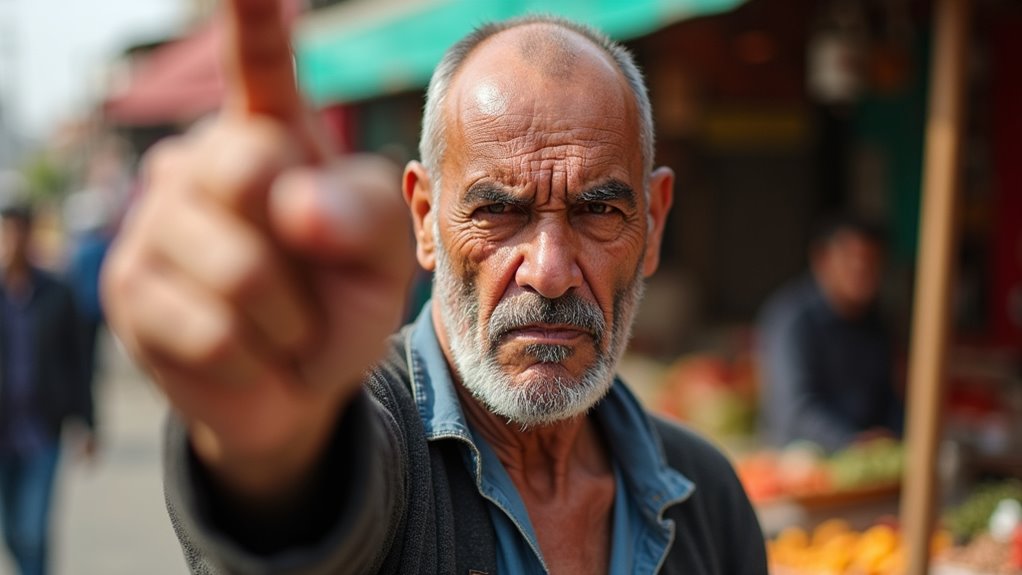
Taking photographs of people without permission in Egypt can lead to uncomfortable confrontations or legal issues, despite recent relaxations in photography laws.
While the 2022 decree allows personal photography in public spaces, cultural sensitivities often override legal technicalities.
Always request verbal permission before capturing images of adults, and completely avoid photographing children, as this is strictly prohibited.
Remember that many Egyptians, especially in conservative areas, may feel uncomfortable with street photography regardless of legal permissions.
Written consent becomes necessary if you plan to publish these images.
Security personnel might still question you about your photography, so carry identification and be prepared to explain yourself.
When in doubt, err on the side of respect—cultural norms in Egypt prioritize privacy over a tourist’s desire for authentic photos.
Be aware that according to Egyptian laws, photographing of scenes that could damage Egypt’s image is criminalized, so exercise caution with your subject matter. The Seychelles and Bora Bora are popular tropical destinations that offer visitors a taste of paradise.
Despite Egypt’s gradual shift toward digital payments, you’ll face significant challenges if you travel without sufficient cash on hand. Egypt remains chiefly cash-based, especially for everyday transactions like street food, market purchases, and tipping service workers.
While larger hotels and upscale establishments accept cards, prepare for daily expenses with Egyptian pounds. Tour guides and local agencies often specifically request payment in Euros or US Dollars rather than local currency. Keep your cash secured in hotel safes rather than carrying large amounts, and remember that displaying wealth can attract unwanted attention.
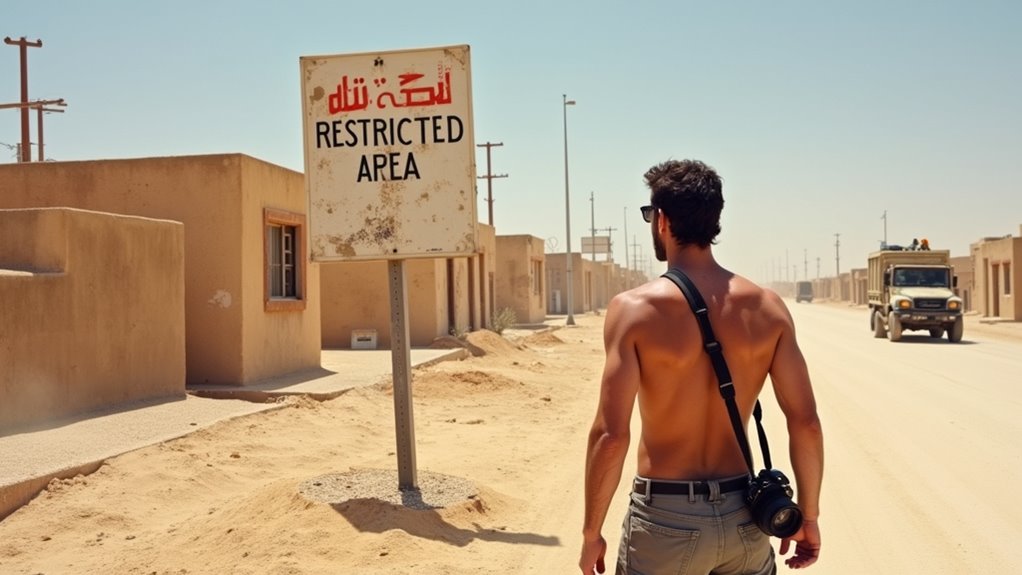
While most tourist destinations in Egypt can be enjoyed safely with reasonable precautions, certain regions demand your strict attention to security advisories. The North Sinai represents the highest risk area, with regular terrorist attacks, kidnappings, and a strict curfew from 5 p.m. to 7 a.m.
North Sinai: Egypt’s highest-risk region with ongoing terrorism, kidnappings, and nightly curfews that travelers must strictly avoid.
Don’t underestimate dangers in the Western Desert, where limited infrastructure means you’re far from emergency assistance. Military operations and terrorist activity make it essential to avoid traveling within 50 km of Libya’s border. Luxor and Alexandria are two popular Nile destinations with distinct charms that may better suit your travel interests.
Even South Sinai, though safer, has experienced terrorist incidents targeting tourist areas.
Always obtain required permits when traveling to South Sinai by 4×4, and comply with authorities at checkpoints. Stick to main highways and avoid unmaintained roads.
Throughout Egypt, remain vigilant about terrorism risks, particularly in remote areas, and stay informed about changing security conditions.
Egypt’s ancient treasures await, but respect its modern realities. You’ll enjoy the pyramids more when you’re hydrated, not scammed, and appropriately dressed. You’ll connect with locals better when you ask before photographing, bargain with good humor, and carry cash for small gestures. You’ll appreciate the journey more when you pace yourself, prepare for distances, and follow safety guidelines. Egypt rewards the prepared, respectful traveler.